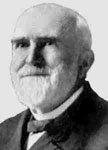Description
A most inspiring work dealing with the character of God in such a way as to make one long to know Him more intimately, to love Him more ardently, and to serve Him more unreservedly. The opening statement, "God is our nearest relative," sums up the spirit breathed through this spiritual classic.
Someone has described the book this way: "No book we have ever read has given us such a sense of God's fatherly love and of His minute interest in the life of each of us. Usually a book about God is a theological treatise couched in language not too easy to comprehend, but this is written experimentally by a man who has pressed into deeper knowledge of God and who, because of revelation, knows Him as few have known Him."
Here is a paragraph from the first chapter:
“God is our own in a peculiar, individual way, privately and personally, so as to thrill us with a joy with which no stranger can intermeddle. God can never be to any other creature in all the universe, just exactly what He is to us. Have we ever thought for five minutes of the grandeur of being created with a unique, individual personality all to ourselves, with a private nature, a great soul world in ourselves, a distinct orb of conscious, immortal existence, and walled in from all other creatures, with a deep privacy of nature into which no one in all the universe can enter except the Lord our God, our loving Creator? Probably this is the greatest glory of our creation, that each of us has in our personality, a sacred sanctuary in the ocean depths of our souls, with a door that never opens except to the touch of that eternal, blessed One, who created us out of His love, and then redeemed us from an awful fall out of what seems even a greater love than creation. There are no higher facts than the personality of God, and the everlasting and private personality of our own selves.”
About the Author
 George D. Watson (1845-1923) was one of the most influential preachers of the late nineteenth century holiness movement in America. Together with his friends and colleagues, Martin Wells Knapp and W. B. Godbey, he was used by the Holy Spirit to sustain and propagate the revival of Methodism which swept across North America and reached across the seas to touch even the British Isles and, in Watson’s case, the South Seas.
George D. Watson (1845-1923) was one of the most influential preachers of the late nineteenth century holiness movement in America. Together with his friends and colleagues, Martin Wells Knapp and W. B. Godbey, he was used by the Holy Spirit to sustain and propagate the revival of Methodism which swept across North America and reached across the seas to touch even the British Isles and, in Watson’s case, the South Seas.
While serving in the army, he came to a saving knowledge of Christ, and after the war entered the ministry in the Methodist Church. He became known as a strong proponent of the sanctified life, employing a simple homespun style that endeared him to the common man. However, despite his everyman manner, his expository sermon method resulted in truths that are still applicable for the twenty-first century.



